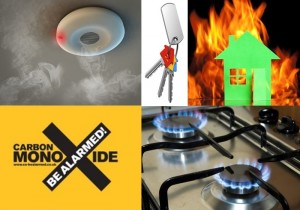 With 450 household fire incidents across the country each and every day (170,000 in the past year), the government has recently promised to get tougher on fire prevention.
With 450 household fire incidents across the country each and every day (170,000 in the past year), the government has recently promised to get tougher on fire prevention.
On 11 March 2015 the housing minister Brandon Lewis announced that residential landlords in England will now be required by law to install working smoke and carbon monoxide alarms in their properties, with the aim of preventing as many as 26 deaths and 670 injuries caused by household fires each year. Holiday homeowners should already be abiding by the relevant fire safety legislation which applies to those providing accommodation to paying guests and may already in response to their general risk assessments be installing carbon monoxide detectors in rooms with fuel burning appliances, stoves and heating boilers.
Landlords required by law to install working smoke and carbon monoxide alarms
When will the legislation come into force?
These new measures regarding smoke and carbon monoxide alarms are expected to come into force from October 2015 and it is hoped that many of the 46 fire and rescue authorities across England will help their local communities meet these new responsibilities by providing free alarms, with grant funding from the government to help them do so.
Do fire alarms reduce the risk?
Statistics have shown that people are four times more likely to die in a house fire if they don’t have a working smoke alarm. Remember, those staying in your holiday home will not be as familiar with the layout and design of your cottage as they are with their own home, meaning that if a fire were to take place, particularly during the night, early warning and identification of a fire is vital to their safety and protection.
How many fire alarms do you need and how do you ensure they’re in working condition?
- You should have a minimum of one smoke alarm on each floor of your letting property. They need to be clearly audible in all areas so your tenants may hear them in all rooms.
- Smoke alarms should be tested on a regular basis and in ideal circumstances each week. As this may be difficult if you live a good distance from your holiday home or during peak periods, ensure that someone is designated with the responsibility of checking all of your fire alarms, and that a record is kept of when they were last checked.
- Your smoke alarms and or their batteries should be replaced in accordance with the manufacturers instructions, even if the alarm is showing no signs of fault.
Why is carbon monoxide (CO) poisoning a risk to your tenants?
Carbon monoxide is a poisonous gas that has no smell or taste, meaning it can be inhaled without you or your guests realising. For this reason it is known as the ‘silent killer’, accounting for 40 deaths and 200 visits to hospital each year in the UK.
The symptoms of carbon monoxide poisoning can include dizziness, nausea, tiredness and confusion, stomach pain and a shortness of breath.
What are the most common causes of carbon monoxide poisoning?
Carbon monoxide is produced when fuels such as gas, oil, coal or wood do not burn fully. The most common causes of carbon monoxide poisoning in holiday homes are:
- Faulty household appliances: You have a legal obligation to ensure that any electrical appliance with the potential to cause injury is kept in a safe condition for visitors to use. Make sure that all appliances in your holiday home are PAT tested by a competent professional.
- Blocked chimneys: There are approximately 6,000 chimney fires in England each year. Ensure your chimney is swept after any long period of inactivity (wood burning fires should be swept quarterly when in use). This is particularly important if you let your property during the winter months.
- Burning fuel in an enclosed or unventillated space: This will most commonly be through a faulty boiler in your residential let property or holiday home. Ensure your boiler is serviced and gas safety inspected and approved by a qualified professional on a regular basis and also make sure guests only enjoy barbeques in well ventilated areas.
Carbon monoxide detectors can be bought in the same format as portable fire alarms, or hard wired into your let property or holiday home.
Boshers offer specialist holiday home insurance to owners across the UK as well as let property insurance for buy to let landlords. For more information on how a specialist insurer can help and support your holiday home business, please give us a call on 01237 429444.

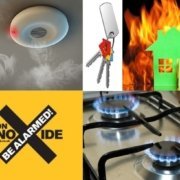
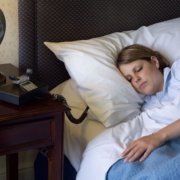
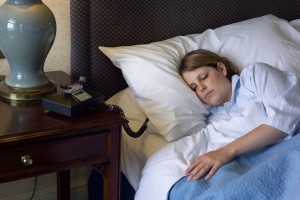 Being awoken in the middle of the night by the loud blast of a fire alarm can be both terrifying and disorientating. There may well be a multitude of things rushing through your mind; is there really a fire or is it a false alarm? Where are the children? Which is the safest route from the building?
Being awoken in the middle of the night by the loud blast of a fire alarm can be both terrifying and disorientating. There may well be a multitude of things rushing through your mind; is there really a fire or is it a false alarm? Where are the children? Which is the safest route from the building?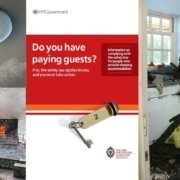
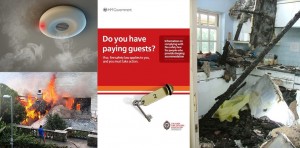 There are many different ways in which a fire could start in your holiday home. Having an understanding of the risks that fire poses to your property and your guests is vital to ensuring a safe stay in your cottage and complying with Fire Safety Law for Holiday Letting.
There are many different ways in which a fire could start in your holiday home. Having an understanding of the risks that fire poses to your property and your guests is vital to ensuring a safe stay in your cottage and complying with Fire Safety Law for Holiday Letting.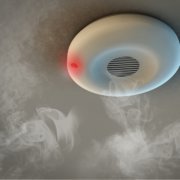
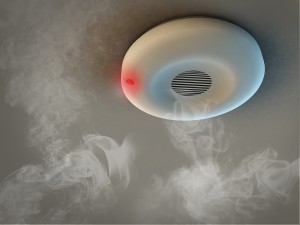 The consequences of a fire in a holiday home can be extremely expensive, disruptive and even fatal. With local fire authorities attending more than 450 household fire incidents across the country each and every day (170,000 in the past year), they are also more common than you may think.
The consequences of a fire in a holiday home can be extremely expensive, disruptive and even fatal. With local fire authorities attending more than 450 household fire incidents across the country each and every day (170,000 in the past year), they are also more common than you may think.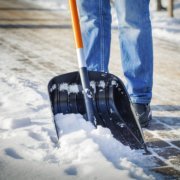

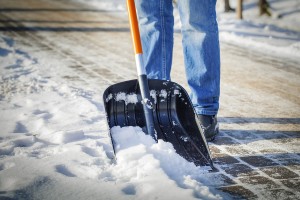

 We are pleased to announce that when our holiday homeowners next renew their specialist
We are pleased to announce that when our holiday homeowners next renew their specialist 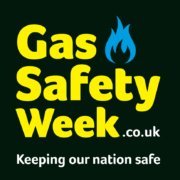


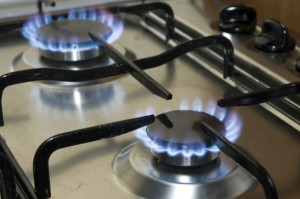 Carbon monoxide (CO) is a highly poisonous gas produced by the incomplete burning of gas, liquid gas, oil, coal and wood. It has been the cause of 40 injuries and deaths in holiday accommodation across the UK in the past two years and is something that many visiting your
Carbon monoxide (CO) is a highly poisonous gas produced by the incomplete burning of gas, liquid gas, oil, coal and wood. It has been the cause of 40 injuries and deaths in holiday accommodation across the UK in the past two years and is something that many visiting your 
 British agriculture has seen unbelievable change since the turn of the century. During that time somewhere in the region of 60 – 80% of farms have diversified in totality or looked to new avenues in order to sustain incomes and grow revenues.
British agriculture has seen unbelievable change since the turn of the century. During that time somewhere in the region of 60 – 80% of farms have diversified in totality or looked to new avenues in order to sustain incomes and grow revenues.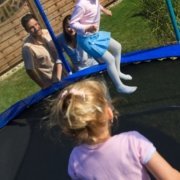
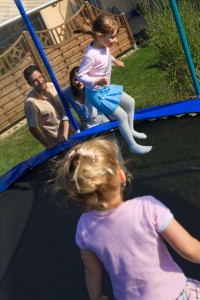 Trampolines and holiday homes, a fun combination or an accident waiting to happen? A fact many people won’t be aware of is that the lightest person on a trampoline is five times more likely to be injured. This happens through a phenomenon called “kipping”. This is where jumping at the same time causes the transfer of kinetic energy to the lightest person causing them to gain greater propulsive force and height. There’s an easy answer to prevent this, have a one at a time rule for your trampoline.
Trampolines and holiday homes, a fun combination or an accident waiting to happen? A fact many people won’t be aware of is that the lightest person on a trampoline is five times more likely to be injured. This happens through a phenomenon called “kipping”. This is where jumping at the same time causes the transfer of kinetic energy to the lightest person causing them to gain greater propulsive force and height. There’s an easy answer to prevent this, have a one at a time rule for your trampoline.